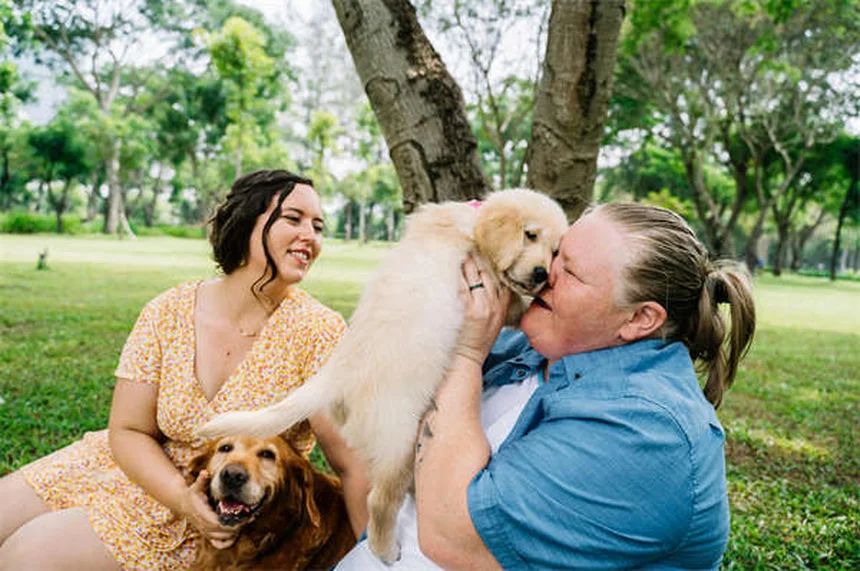What is thymoma in rabbits? The answer is: thymoma is a serious lung tumor that can affect your bunny's health. As a rabbit owner myself, I know how scary this diagnosis can sound. Let me break it down for you - thymoma and thymic lymphoma are cancers that start in the lining of the lungs, and they're the most common cause of masses in the middle part of a rabbit's body.Here's what you need to know right away: these conditions can either stay localized or spread throughout the body. The tricky part? We don't actually know why they develop - age, breed, or gender don't seem to matter. But don't panic! With proper treatment and care, many rabbits can still live happy lives. In this guide, I'll walk you through everything from spotting early symptoms to treatment options and long-term management.
- 1、Understanding Thymoma and Thymic Lymphoma in Rabbits
- 2、Treatment Options for Your Rabbit
- 3、Long-Term Outlook and Management
- 4、Prevention and Early Detection
- 5、Beyond the Basics: Additional Considerations for Rabbit Owners
- 6、Understanding the Financial Aspect
- 7、Alternative and Supportive Therapies
- 8、Building Your Support Network
- 9、FAQs
Understanding Thymoma and Thymic Lymphoma in Rabbits
What Are These Conditions?
Let me break it down for you - thymoma and thymic lymphoma are two types of lung tumors that can seriously affect your bunny's health. These cancers start in the lining of the lungs and can either stay in one spot or spread throughout the body. Did you know they're the most common cause of masses in the middle part of a rabbit's body?
Here's something interesting - we don't actually know why these conditions develop. There's no clear data showing which rabbits are more at risk. Age, gender, or breed doesn't seem to matter, which makes it tricky to predict who might get sick.
Spotting the Warning Signs
You'll want to watch for these red flags:
Physical changes like bulging eyes or swelling around the head, neck, and front legs. This happens when tumors create pressure inside your rabbit's body.
Now here's a question you might be wondering: "How can I tell if my rabbit is having trouble breathing?" Great question! Look for rapid, shallow breaths or signs that your bunny is working harder than normal to breathe. You might notice their sides moving more than usual or even see them breathing with their mouth open - which is never normal for rabbits.
 Photos provided by pixabay
Photos provided by pixabay
Getting the Right Diagnosis
When you take your rabbit to the vet, they'll need to rule out other conditions first. Here's a quick comparison of what they might consider:
| Condition | Key Differences |
|---|---|
| True Lymphoma | Affects different cells than thymic lymphoma |
| Thyroid Cancer | Shows different symptoms and affects different areas |
| Benign Growths | Won't spread like cancerous tumors |
Your vet will likely take X-rays and might do a fine needle aspiration - that's where they use a tiny needle to collect cells for testing. This helps them see exactly what kind of cells are causing the problem.
Treatment Options for Your Rabbit
Surgical Solutions
If your bunny needs surgery, here's what to expect: The vet will remove any masses that are blocking airways. This is often an emergency procedure because breathing problems can become life-threatening very quickly.
After surgery, your rabbit might need radiation therapy to shrink any remaining tumor cells. Some bunnies also need steroids to reduce inflammation. Now you might be thinking: "Does chemotherapy work for rabbits?" Honestly, we don't have enough data to say for sure. While it's sometimes used, we're still learning about its effectiveness for these specific conditions.
Post-Treatment Care
Recovery doesn't end when you leave the vet's office. You'll need to:
- Schedule regular check-ups for at least three months
- Watch for any returning symptoms
- Keep your rabbit comfortable and stress-free
Here's a pro tip: Create a quiet recovery space with soft bedding and easy access to food and water. Your bunny will appreciate the extra TLC!
Long-Term Outlook and Management
 Photos provided by pixabay
Photos provided by pixabay
Getting the Right Diagnosis
If the vet removes the entire tumor, your rabbit has a good chance of bouncing back. Regular imaging tests will help catch any new growths early. I've seen bunnies make full recoveries and go on to live happy, hoppy lives!
When Things Are More Complicated
If the tumor couldn't be completely removed, the situation gets tougher. You'll need to work closely with your vet to manage symptoms and keep your rabbit comfortable. Quality of life becomes the top priority in these cases.
Remember, every rabbit is different. Some respond amazingly well to treatment, while others need more support. The key is staying observant and working with a vet you trust.
Prevention and Early Detection
What You Can Do
Since we don't know what causes these conditions, prevention is tricky. But here's what helps:
- Regular vet check-ups (at least twice a year)
- Watching for any changes in behavior or appearance
- Keeping good records of your rabbit's normal habits
 Photos provided by pixabay
Photos provided by pixabay
Getting the Right Diagnosis
You know your rabbit better than anyone. If something seems "off," trust your gut and get it checked out. Early detection makes a huge difference in treatment success. That weird head tilt or slight change in appetite could be important, so don't ignore the small stuff!
At the end of the day, being an attentive rabbit parent is the best medicine. With proper care and quick action when needed, you're giving your bunny the best shot at a healthy life.
Beyond the Basics: Additional Considerations for Rabbit Owners
The Emotional Impact on You and Your Bunny
Let's talk about something we don't often discuss - how emotionally tough this diagnosis can be. Your rabbit might become more clingy or withdrawn, and that's completely normal. Animals sense when something's wrong, just like we do.
I've seen many cases where rabbits start seeking more attention from their humans when they're not feeling well. You might notice your bunny nudging your hand more often or wanting to stay closer than usual. On the flip side, some rabbits become more reserved - that's their way of coping. The key is to respect their needs while providing gentle support.
Dietary Adjustments During Treatment
Here's something important that often gets overlooked - your rabbit's diet might need tweaking during treatment. Appetite changes are common, and some medications can affect digestion.
Try offering smaller, more frequent meals of their favorite foods. If they're not eating as much hay (which is crucial for digestion), you might need to get creative. I've had success with lightly steaming veggies to make them more aromatic and appealing. And don't forget about hydration - adding a splash of unsweetened fruit juice to their water can encourage drinking.
Understanding the Financial Aspect
Budgeting for Unexpected Costs
Let's be real - veterinary care isn't cheap, especially when dealing with cancer treatment. The costs can add up quickly between diagnostics, surgery, and follow-up care.
Here's a rough breakdown of potential expenses you might encounter:
| Service | Estimated Cost Range |
|---|---|
| Initial Consultation | $50-$100 |
| X-rays | $150-$300 |
| Surgery | $800-$2,000+ |
| Follow-up Visits | $40-$80 each |
Now, you might be thinking: "How can I possibly afford all this?" That's a valid concern! Many vets offer payment plans, and there are pet insurance options that can help. Some animal charities also provide financial assistance for veterinary care - it's worth asking your vet about local resources.
The Value of Pet Insurance
Speaking of insurance, let me share a personal story. I once had a client who thought pet insurance was unnecessary - until their rabbit needed emergency surgery. The $30/month policy ended up covering 80% of the $2,500 bill.
While it's too late to get coverage after diagnosis, if you have other pets or plan to get more rabbits in the future, insurance can provide peace of mind. Just make sure to read the fine print about pre-existing conditions.
Alternative and Supportive Therapies
Complementary Approaches
Beyond conventional treatment, some owners find complementary therapies helpful. Things like gentle massage, acupuncture (yes, for rabbits!), and certain herbal supplements might provide comfort.
But here's the catch - always consult your vet first. Some herbs that are safe for humans can be dangerous for rabbits. And while massage can be wonderful for circulation and relaxation, you need to be extra gentle with a rabbit who has thymoma or thymic lymphoma.
Creating a Healing Environment
Your rabbit's living space can make a big difference in their recovery. Consider these simple upgrades:
- Lower the litter box sides for easier access
- Add extra padding in their favorite resting spots
- Keep their space at a comfortable, consistent temperature
- Use soft lighting to reduce stress
I remember one case where simply moving a nervous rabbit's enclosure to a quieter part of the house made a noticeable difference in their recovery. Small changes can have big impacts!
Building Your Support Network
Finding Community
You don't have to go through this alone. There are online communities and local support groups for rabbit owners dealing with similar health challenges.
Sharing experiences with others who understand can be incredibly comforting. You might pick up practical tips you hadn't considered, like which vets specialize in rabbit oncology or how to give medication more easily. Plus, it's nice to talk with people who won't judge you for spending $200 on a bunny CT scan!
Working With Your Veterinary Team
Developing a good relationship with your vet is crucial. Don't be afraid to ask questions or seek a second opinion if something doesn't feel right.
Keep a notebook dedicated to your rabbit's care - jot down symptoms, medication times, and any questions that pop into your head between visits. This helps you stay organized and makes vet appointments more productive. Remember, you're an essential part of your rabbit's healthcare team!
E.g. :Lung Tumors and Lung Cancer in Rabbits | PetMD
FAQs
Q: What are the first signs of thymoma in rabbits?
A: The first signs you might notice include bulging eyes and swelling around the head, neck, and front legs. This happens because tumors create pressure inside your rabbit's body. You may also see breathing changes - rapid, shallow breaths or your bunny working harder than normal to breathe. Watch closely if your rabbit starts breathing with its mouth open, as this is never normal for rabbits. Other red flags include muscle weakness and difficulty eating. I always tell rabbit owners to trust their gut - if something seems "off" with your bunny, it's worth getting checked out.
Q: How is thymoma diagnosed in rabbits?
A: Your vet will start by ruling out other conditions like true lymphoma or thyroid cancer. They'll likely take X-rays to see what's happening inside your rabbit's chest. The most definitive test is usually a fine needle aspiration, where the vet uses a tiny needle to collect cells for testing. This helps determine if the cells are cancerous and what type they are. The whole process can be stressful for your bunny, so I recommend bringing their favorite treats and a familiar blanket to help them feel more comfortable during the visit.
Q: Can thymoma in rabbits be cured?
A: The outlook depends on several factors. If the tumor is caught early and can be completely removed with surgery, many rabbits make full recoveries. However, if the cancer has spread or can't be fully removed, the prognosis becomes more guarded. Some rabbits respond well to radiation therapy or steroids to reduce inflammation. While we don't have much data on chemotherapy for rabbits with thymoma, some vets may recommend it in certain cases. The key is working closely with an experienced rabbit vet to create the best treatment plan for your individual bunny.
Q: How can I care for my rabbit after thymoma treatment?
A: Post-treatment care is crucial! Here's my top advice from years of rabbit care: First, create a quiet recovery space with soft bedding and easy access to food and water. You'll need to schedule regular check-ups - typically every few weeks at first, then monthly. Watch for any returning symptoms like breathing changes or loss of appetite. Keep your rabbit's environment stress-free and maintain their normal routine as much as possible. And don't forget the power of love - extra gentle pets and their favorite veggies can work wonders for recovery!
Q: Can I prevent thymoma in my rabbit?
A: Since we don't know what causes thymoma, prevention is challenging. But here's what I recommend: regular vet check-ups (at least twice a year), being observant of any changes in your rabbit's behavior or appearance, and keeping good records of what's normal for your bunny. Early detection makes a huge difference, so don't ignore small changes like slight weight loss or reduced activity. The best thing you can do is be an attentive rabbit parent and build a good relationship with a rabbit-savvy vet.




